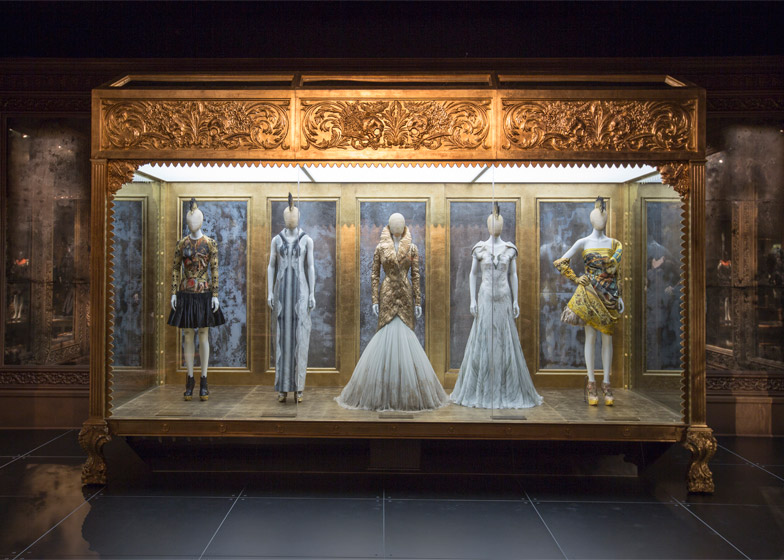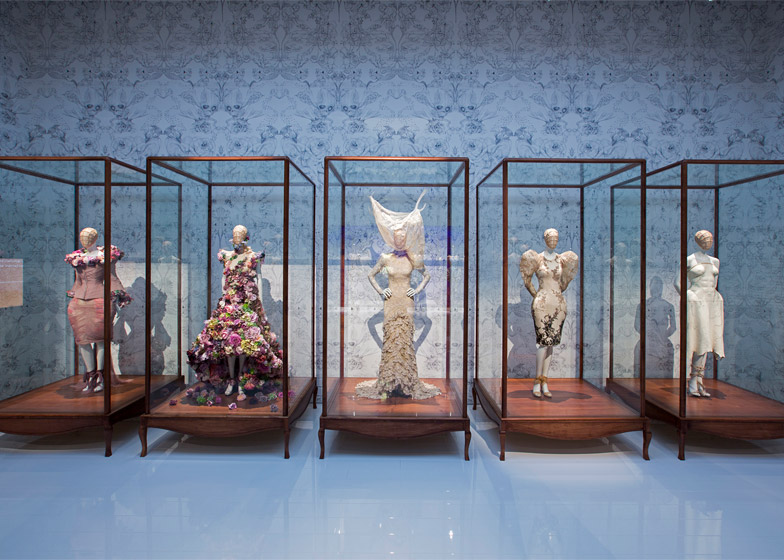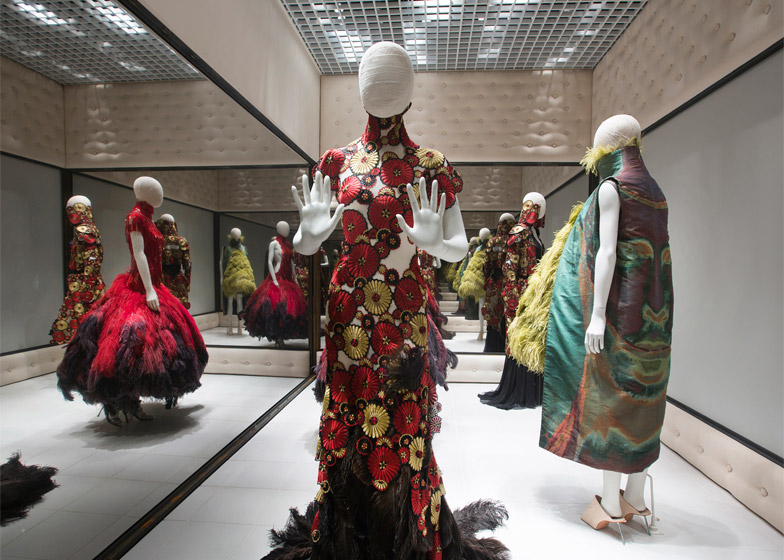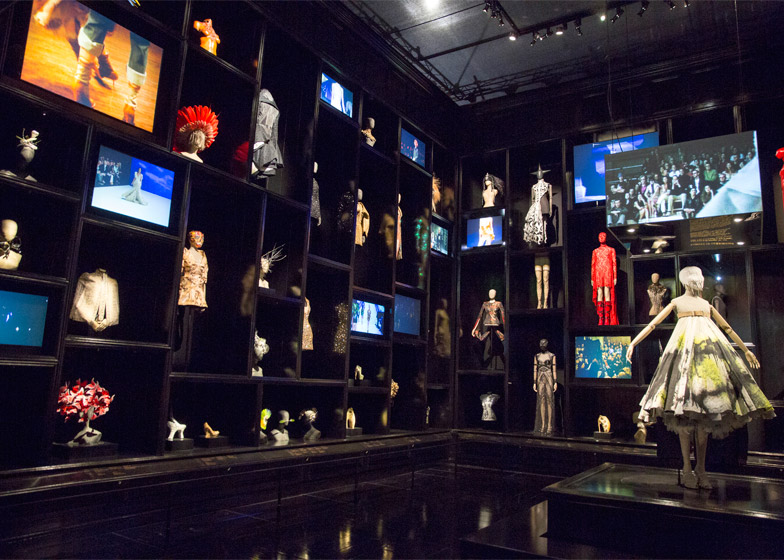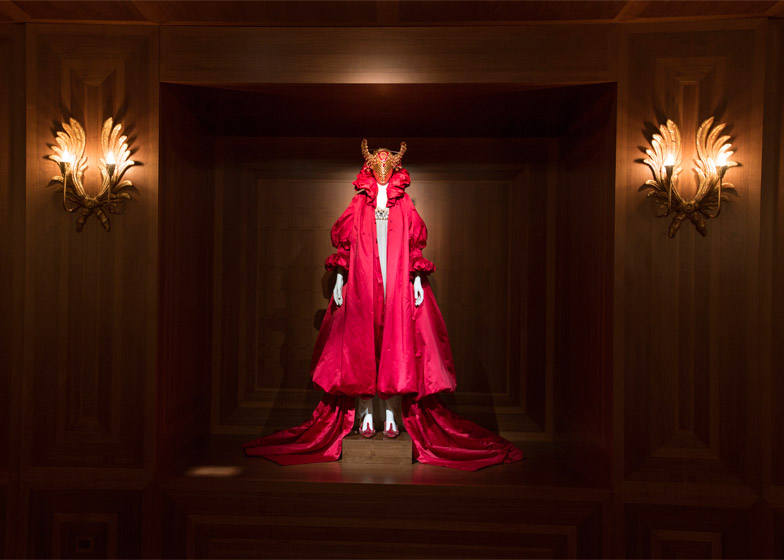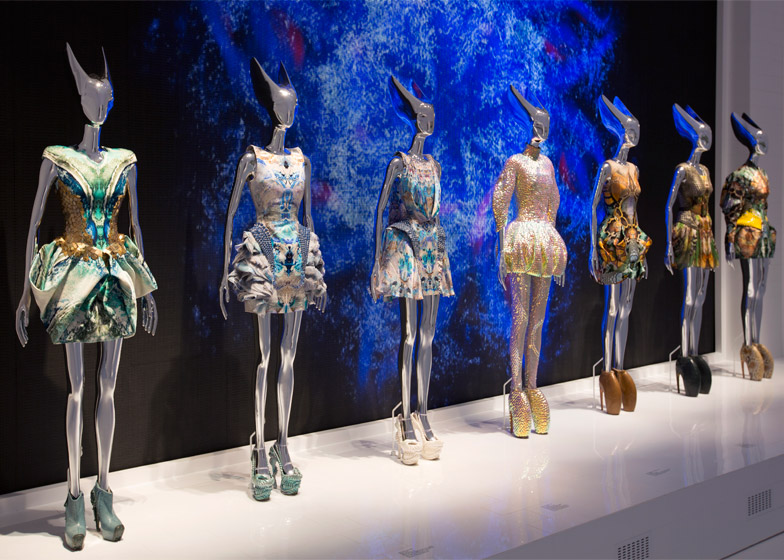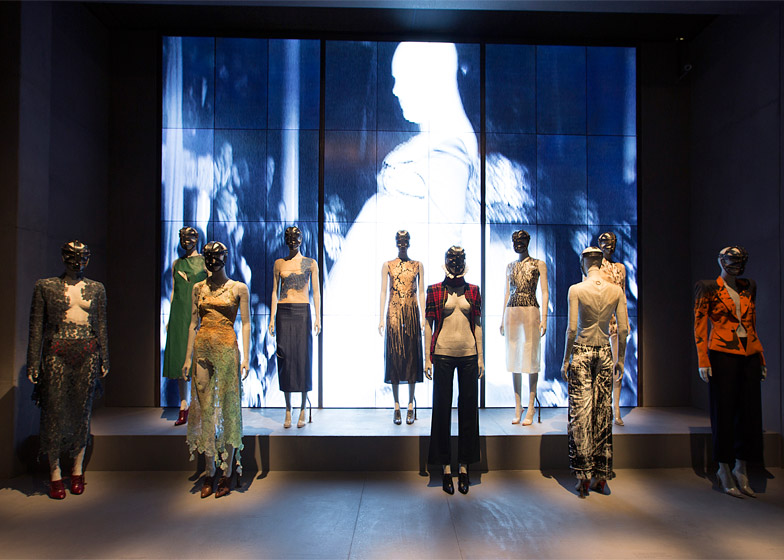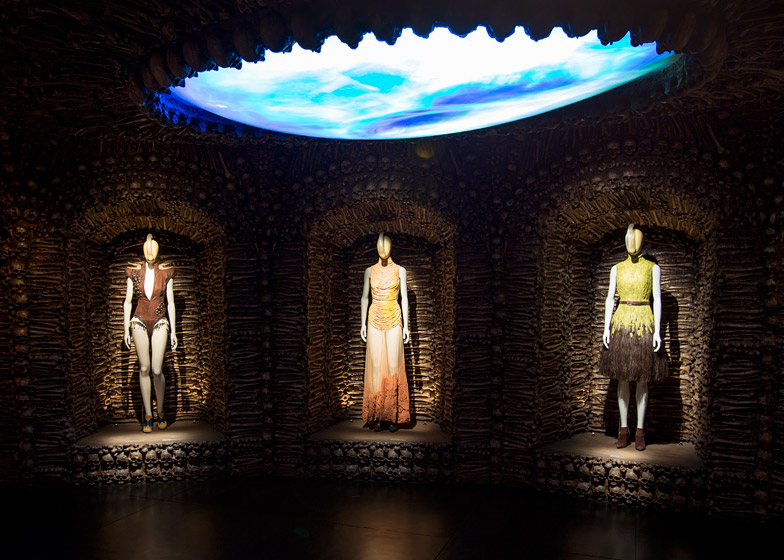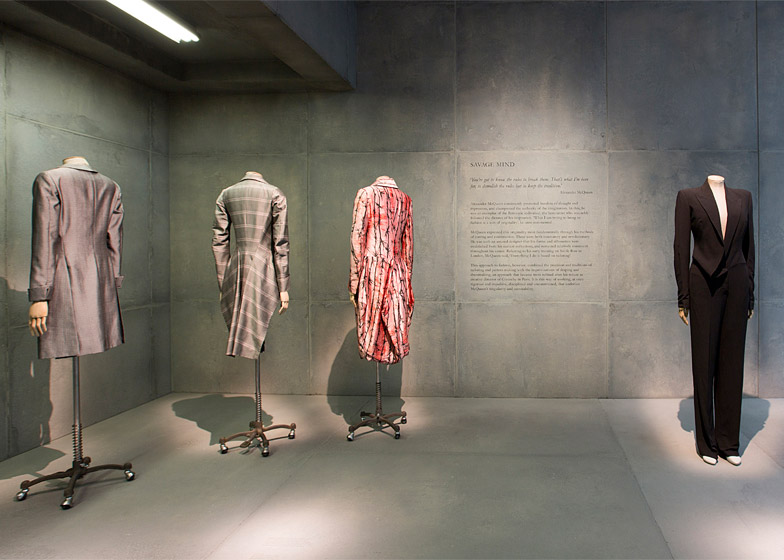The exhibition of work by fashion's late enfant-terrible Alexander McQueen first shown in New York has been expanded for London's V&A museum (+ slideshow).
Alexander McQueen: Savage Beauty looks back at the career of the British fashion designer, who died in 2010, with a larger version of the 2011 exhibition that took place at the Metropolitan Museum of Art's Costume Institute in New York.
"When I saw that exhibition for the very first time four years ago, my very first idea was 'he has to come home'," said V&A director Martin Roth during a preview of the exhibition this morning.
The exhibition will be the first retrospective of McQueen's work in Europe, and has taken over three of the V&A's galleries. The extra space allowed the original show to be expanded to include more than 60 additional pieces, supplementing the selection chosen by Costume Institute curator Andrew Bolton.
Senior curator of the London exhibition, Claire Wilcox, was granted full access to the designer's archives by Sarah Burton, who took over as creative director of McQueen's studio after his death.
Speaking to Dezeen ahead of the opening, Wilcox described his oeuvre as an "extraordinary wealth of riches" and a "cornucopia".
McQueen's work is arranged thematically, with areas focused on different notions of Romanticism – including gothic, primitivism, nationalism and naturalism.
In an addition to the Met's show, the first section is dedicated to London – the city the designer was born, grew up and worked in.
A recording of McQueen's voice is played in the grey-coloured gallery, where examples of his tailoring and early collections are presented alongside footage of his first catwalk show from 1995.
"He brought tailoring back in," said Wilcox. "If you look on any fashion website or at any collection now, tailoring is strong. It's a strong British tradition and I hugely respect his contribution for tailoring alone."
Another room is reminiscent of a catacomb, with bone covered walls and mannequins set into alcoves and clothed in extravagant garments made from synthetic hair and feathers.
A "cabinet of curiosities" occupies a double-height space, with all four walls covered by niches filled with more than 100 garments and accessories – including collaborations with milliner Philip Treacy and jeweller Shaun Leane.
In the centre, a dress that was spray-painted live by two robotic arms slowly rotates as the model did during its original Spring Summer 1999 presentation.
Large screens in a selection of the recesses play footage from more of McQueen's runway shows, renowned for their theatrics.
"He managed to marry really thoughtful, challenging, provocative and theatrical catwalk presentations alongside an extraordinary facility with tailoring and cutting," said Wilcox.
The Pepper's Ghost illusion that ended The Widows of Culloden Autumn Winter 2006 show is recreated as a holographic apparition of Kate Moss wearing the same rippling silk-organza dress.
Further galleries present his garments influenced by attire from other cultures, while his nature-inspired pieces – including a dress made from razor-clam shells – are displayed in large glass vitrines like museum specimens.
"There are many garments that are not made of textiles at all, they are made of shells or glass or leather or metal," Wilcox said. "His imagination was not restricted by the fact that textile is the material normally used to make clothes with."
The last space shows his last fully realised collection, Plato's Atlantis from Spring Summer 2010, designed for a futuristic underwater world.
Music in each of the galleries was specially composed by John Gosling, who created the accompaniments for all of McQueen's runway presentations.
Alexander McQueen: Savage Beauty opens to the public on 14 March and continues until 2 August.
Images courtesy of the V&A museum, unless otherwise stated.

